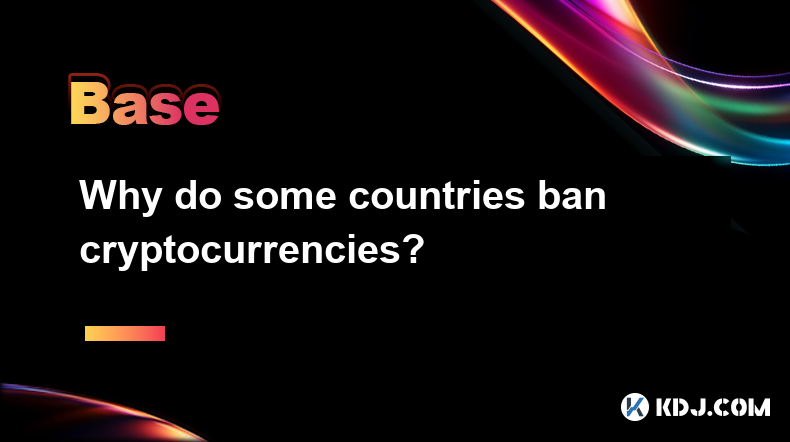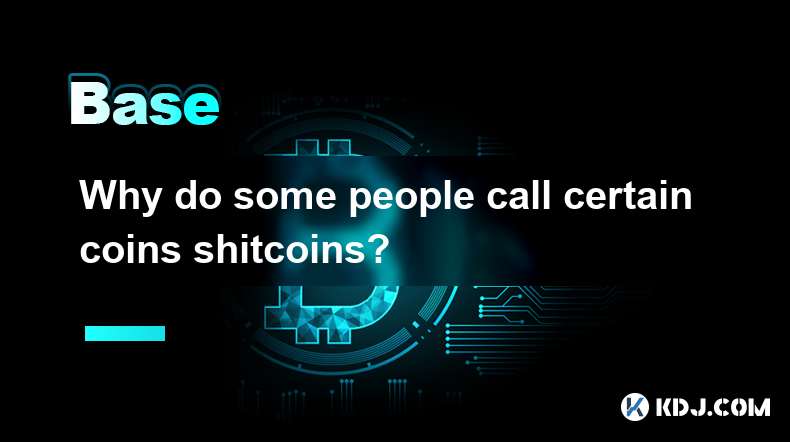-
 Bitcoin
Bitcoin $84,185.0400
0.67% -
 Ethereum
Ethereum $1,577.2456
-0.72% -
 Tether USDt
Tether USDt $0.9999
0.00% -
 XRP
XRP $2.0809
-0.36% -
 BNB
BNB $582.8235
0.48% -
 Solana
Solana $130.9436
3.39% -
 USDC
USDC $0.9999
0.00% -
 TRON
TRON $0.2479
-1.08% -
 Dogecoin
Dogecoin $0.1544
0.45% -
 Cardano
Cardano $0.6092
0.04% -
 UNUS SED LEO
UNUS SED LEO $9.4085
0.95% -
 Chainlink
Chainlink $12.3276
0.65% -
 Avalanche
Avalanche $18.7301
-1.46% -
 Stellar
Stellar $0.2356
-0.12% -
 Toncoin
Toncoin $2.8868
1.26% -
 Shiba Inu
Shiba Inu $0.0...01181
1.04% -
 Sui
Sui $2.0513
-2.08% -
 Hedera
Hedera $0.1571
0.11% -
 Bitcoin Cash
Bitcoin Cash $322.6694
0.90% -
 Litecoin
Litecoin $74.1756
-2.02% -
 Polkadot
Polkadot $3.5473
0.60% -
 Dai
Dai $1.0000
-0.01% -
 Hyperliquid
Hyperliquid $15.7751
4.37% -
 Bitget Token
Bitget Token $4.3041
1.13% -
 Ethena USDe
Ethena USDe $0.9992
0.00% -
 Pi
Pi $0.6031
-6.62% -
 Monero
Monero $218.7340
1.61% -
 Uniswap
Uniswap $5.1337
-0.99% -
 OKB
OKB $51.3715
-1.08% -
 Pepe
Pepe $0.0...07133
2.31%
Why do some countries ban cryptocurrencies?
Some countries ban cryptocurrencies due to concerns over financial stability, money laundering, lack of consumer protection, high energy consumption, and threats to traditional banking systems.
Apr 15, 2025 at 06:42 pm

Introduction to Cryptocurrency Bans
Cryptocurrencies, such as Bitcoin and Ethereum, have become increasingly popular over the past decade. However, not all countries have embraced this digital financial revolution. Some countries have imposed outright bans on cryptocurrencies, while others have implemented strict regulations. Understanding the reasons behind these bans can shed light on the complex relationship between digital currencies and global financial systems.
Concerns Over Financial Stability
One of the primary reasons some countries ban cryptocurrencies is the concern over financial stability. Cryptocurrencies operate independently of central banks and traditional financial institutions, which can pose a threat to a country's monetary policy. For instance, if a significant portion of a country's population starts using cryptocurrencies, it could lead to a decrease in the demand for the national currency, potentially causing inflation or even hyperinflation.
Countries like China have cited financial stability as a key reason for imposing bans on cryptocurrency transactions. In 2021, China cracked down on all cryptocurrency transactions, citing the need to protect its financial system and prevent money laundering. This move was seen as an attempt to maintain control over its economy and prevent the potential destabilization that could arise from widespread cryptocurrency use.
Risk of Money Laundering and Fraud
Another significant factor driving cryptocurrency bans is the risk of money laundering and fraud. Cryptocurrencies are often criticized for their perceived anonymity, which can make them attractive to criminals looking to launder money or engage in other illicit activities. The decentralized nature of these digital assets makes it difficult for authorities to track and regulate transactions, leading to concerns about their use in illegal activities.
For example, North Korea has been linked to cryptocurrency hacks and money laundering, using the proceeds to fund its nuclear weapons program. Countries like Vietnam have banned cryptocurrencies to curb such activities and protect their citizens from financial crimes. By banning cryptocurrencies, these countries aim to reduce the risk of their financial systems being exploited for illegal purposes.
Lack of Consumer Protection
The lack of consumer protection is another reason some countries have banned cryptocurrencies. Unlike traditional financial products, cryptocurrencies often come with little to no regulatory oversight, leaving consumers vulnerable to scams and investment losses. This lack of protection can lead to significant financial harm for individuals who invest in these volatile assets.
In India, for instance, the Reserve Bank of India (RBI) initially banned banks from dealing with cryptocurrency businesses due to concerns over consumer protection. Although this ban was later overturned by the Supreme Court, the initial move highlighted the government's worry about the potential risks faced by consumers in the unregulated cryptocurrency market.
Energy Consumption and Environmental Concerns
Cryptocurrencies, particularly those that use proof-of-work mechanisms like Bitcoin, are known for their high energy consumption. The process of mining cryptocurrencies requires significant computational power, leading to substantial electricity usage. This has raised environmental concerns, as the carbon footprint of cryptocurrency mining can be considerable.
Countries like Iran have imposed temporary bans on cryptocurrency mining to address energy consumption issues. In 2021, Iran faced power shortages, and the government banned mining to reduce the strain on its energy grid. By banning or restricting cryptocurrency activities, these countries aim to mitigate the environmental impact and ensure sustainable energy use.
Impact on Traditional Banking Systems
The rise of cryptocurrencies poses a potential threat to traditional banking systems. As more people turn to digital currencies, there could be a decrease in the use of traditional banking services, leading to a loss of revenue for banks. This could, in turn, affect the overall stability of the financial sector.
For example, Ecuador banned cryptocurrencies in 2014 to protect its newly introduced electronic currency, the Sistema de Dinero Electrónico. The government was concerned that the adoption of cryptocurrencies could undermine the success of its own digital currency initiative. By banning cryptocurrencies, Ecuador aimed to maintain control over its financial system and support its traditional banking infrastructure.
Frequently Asked Questions
Q: Are there any countries that have reversed their bans on cryptocurrencies?
A: Yes, some countries have reversed their bans on cryptocurrencies. For instance, India's Supreme Court overturned the RBI's ban on banks dealing with cryptocurrency businesses in 2020. This decision allowed cryptocurrency exchanges to resume operations and highlighted the evolving nature of cryptocurrency regulations globally.
Q: How do countries enforce cryptocurrency bans?
A: Countries enforce cryptocurrency bans through various measures, including blocking access to cryptocurrency exchanges, prohibiting banks from handling cryptocurrency transactions, and imposing fines or legal penalties on individuals and businesses that violate the bans. Enforcement can be challenging due to the decentralized nature of cryptocurrencies, but countries often use a combination of regulatory and technological measures to curb their use.
Q: Can individuals in countries with cryptocurrency bans still use digital currencies?
A: Yes, individuals in countries with cryptocurrency bans can still use digital currencies, but they often have to resort to using VPNs to access foreign exchanges or engaging in peer-to-peer transactions. These methods carry additional risks, including potential legal repercussions and increased vulnerability to scams.
Q: What role do international organizations play in cryptocurrency regulations?
A: International organizations, such as the Financial Action Task Force (FATF), play a significant role in shaping cryptocurrency regulations. They provide guidelines and standards that countries can adopt to combat money laundering and terrorist financing associated with cryptocurrencies. While these organizations do not have the power to enforce bans directly, their recommendations can influence national policies and regulations.
Disclaimer:info@kdj.com
The information provided is not trading advice. kdj.com does not assume any responsibility for any investments made based on the information provided in this article. Cryptocurrencies are highly volatile and it is highly recommended that you invest with caution after thorough research!
If you believe that the content used on this website infringes your copyright, please contact us immediately (info@kdj.com) and we will delete it promptly.
- Binance Coin (BNB) Price, Solana (SOL) Price Surge, and BlockDAG (BDAG) Are Drawing Attention This Week
- 2025-04-17 07:35:13
- Bitcoin (BTC/USD) Trading Near Flat on Wednesday, up 0.14% to $83,788
- 2025-04-17 07:35:13
- Panama City Becomes the First Government Institution to Accept Cryptocurrency Payments
- 2025-04-17 07:30:13
- Due to Regulatory Pressure, Ethena GmbH Will End Operations in Germany
- 2025-04-17 07:30:13
- A $1,000 XRP Purchase in 2013 Would Now Be Worth $346,821
- 2025-04-17 07:25:13
- BetMGM Bonus Code CUSE150: Get a $150 Bonus or a $1500 First Bet Offer
- 2025-04-17 07:25:13
Related knowledge

What does Floor Price mean in the NFT market
Apr 17,2025 at 12:42am
The term Floor Price is a critical concept within the NFT (Non-Fungible Token) market, serving as a key indicator for both buyers and sellers. In essence, the floor price represents the lowest price at which an NFT from a particular collection is currently listed for sale on a marketplace. This price point is crucial for understanding the perceived valu...

What is Alpha? How to find Alpha opportunities?
Apr 16,2025 at 12:42pm
What is Alpha?Alpha is a term widely used in the financial world, including the cryptocurrency market, to describe the ability of an investment to outperform a benchmark. In the context of cryptocurrencies, alpha refers to the excess return an investor achieves over the market's average return. For example, if the overall crypto market grows by 10% in a...

Why do cryptocurrency enthusiasts like to say GM?
Apr 16,2025 at 06:21am
In the world of cryptocurrency, the term 'GM' has become a popular greeting among enthusiasts. GM stands for 'Good Morning,' and its widespread use within the crypto community has a deeper significance than just a simple greeting. This article delves into the reasons why cryptocurrency enthusiasts like to say GM, exploring its origins, cultural signific...

What do WAGMI and NGMI mean?
Apr 16,2025 at 08:08pm
In the world of cryptocurrency, you might often come across the acronyms WAGMI and NGMI. These terms have become part of the crypto slang and are frequently used in discussions, tweets, and forums related to digital currencies. Let's delve into what these terms mean, their origins, and how they are used within the crypto community. Understanding WAGMIWA...

What are Diamond Hands and Paper Hands?
Apr 16,2025 at 10:42am
In the world of cryptocurrencies, the terms Diamond Hands and Paper Hands are frequently used to describe the behavior and mindset of investors, particularly in volatile markets. These terms originated from online communities and have become a significant part of the crypto lexicon, often used to describe the level of resilience and commitment an invest...

Why do some people call certain coins shitcoins?
Apr 17,2025 at 03:21am
Understanding the Term 'Shitcoin'The term 'shitcoin' is a colloquialism within the cryptocurrency community that is used to describe cryptocurrencies that are perceived as having little to no value or potential. It is a derogatory term, often used to express disdain or skepticism about the viability of certain digital assets. The use of 'shitcoin' is su...

What does Floor Price mean in the NFT market
Apr 17,2025 at 12:42am
The term Floor Price is a critical concept within the NFT (Non-Fungible Token) market, serving as a key indicator for both buyers and sellers. In essence, the floor price represents the lowest price at which an NFT from a particular collection is currently listed for sale on a marketplace. This price point is crucial for understanding the perceived valu...

What is Alpha? How to find Alpha opportunities?
Apr 16,2025 at 12:42pm
What is Alpha?Alpha is a term widely used in the financial world, including the cryptocurrency market, to describe the ability of an investment to outperform a benchmark. In the context of cryptocurrencies, alpha refers to the excess return an investor achieves over the market's average return. For example, if the overall crypto market grows by 10% in a...

Why do cryptocurrency enthusiasts like to say GM?
Apr 16,2025 at 06:21am
In the world of cryptocurrency, the term 'GM' has become a popular greeting among enthusiasts. GM stands for 'Good Morning,' and its widespread use within the crypto community has a deeper significance than just a simple greeting. This article delves into the reasons why cryptocurrency enthusiasts like to say GM, exploring its origins, cultural signific...

What do WAGMI and NGMI mean?
Apr 16,2025 at 08:08pm
In the world of cryptocurrency, you might often come across the acronyms WAGMI and NGMI. These terms have become part of the crypto slang and are frequently used in discussions, tweets, and forums related to digital currencies. Let's delve into what these terms mean, their origins, and how they are used within the crypto community. Understanding WAGMIWA...

What are Diamond Hands and Paper Hands?
Apr 16,2025 at 10:42am
In the world of cryptocurrencies, the terms Diamond Hands and Paper Hands are frequently used to describe the behavior and mindset of investors, particularly in volatile markets. These terms originated from online communities and have become a significant part of the crypto lexicon, often used to describe the level of resilience and commitment an invest...

Why do some people call certain coins shitcoins?
Apr 17,2025 at 03:21am
Understanding the Term 'Shitcoin'The term 'shitcoin' is a colloquialism within the cryptocurrency community that is used to describe cryptocurrencies that are perceived as having little to no value or potential. It is a derogatory term, often used to express disdain or skepticism about the viability of certain digital assets. The use of 'shitcoin' is su...
See all articles























































































